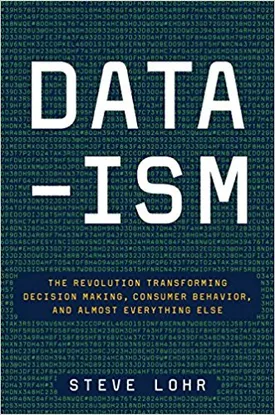Data-ism: The Revolution Transforming Decision Making, Consumer Behavior, and Almost Everything Else by Steve Lohr
Data-ism is the radical new approach to decision making and consumer behavior that is revolutionizing the way businesses and individuals operate in today’s digital world. In his book, “Data-ism: The Revolution Transforming Decision Making, Consumer Behavior, and Almost Everything Else,” veteran New York Times technology reporter Steve Lohr brings together the major players and key figures who are making the Data-ism revolution possible.
Lohr breaks down the concept of data-ism in order to make it accessible to a diverse audience. He explains that data-ism is a belief that data is the most valuable analytical tool, and that technology enables data to be collected, mined, and analyzed to draw conclusions and make decisions objectively. This belief helps business leaders and individuals to make more informed decisions, and changes the game in consumer behavior and almost everything else.
At the heart of Data-ism are data-driven decision technologies, such as artificial intelligence (AI) and machine learning (ML). Drawing from information collected from websites, social media platforms, and sensors, businesses can analyze consumer data to come up with better marketing strategies and to improve services. AI and ML can also be used by individuals to help in their day-to-day activities, such as finding the best deals for groceries or selecting the most efficient route for a commute.
Lohr frames Data-ism in the context of the rise of big data. He explains how big data—the massive amounts of information generated from multiple sources—has forced companies to rethink the way they collect and use data, including how they make decisions. He also identifies common stumbling blocks in data-driven decision-making, such as biases and privacy.
While data-ism is transforming decision-making and consumer behavior, it’s also causing uneasiness in some areas. Lohr covers several topics related to this unease, including the possibility of machines taking over human control and the implications of biometrics and other forms of data collection. He explores the ethical challenges surrounding pervasive data collection and explains how to strike a balance between security and privacy.
Lohr uses interviews with data scientists, researchers, entrepreneurs, executives, and regulatory experts to illustrate the importance and potential of data-ism. While there is no clear answer to how data-ism is transforming different industries and aspects of society, by presenting an overview of the issues and stakeholders involved, Lohr provides insight into how we’re likely to evolve as data-ism takes hold.
Overall, “Data-ism: The Revolution Transforming Decision Making, Consumer Behavior, and Almost Everything Else” is an essential book for anyone who wants to understand the far-reaching implications of data-ism and the Data Age. By exploring the advances in data-driven decision technology and discussing the implications, this book provides a starting point for businesses and individuals to make informed decisions about their own data-driven decision-making. In Lohr’s own words, “Data-ism is reshaping economics and commerce, culture and democracy, science, health care and our own sense of what it means to be human.”

